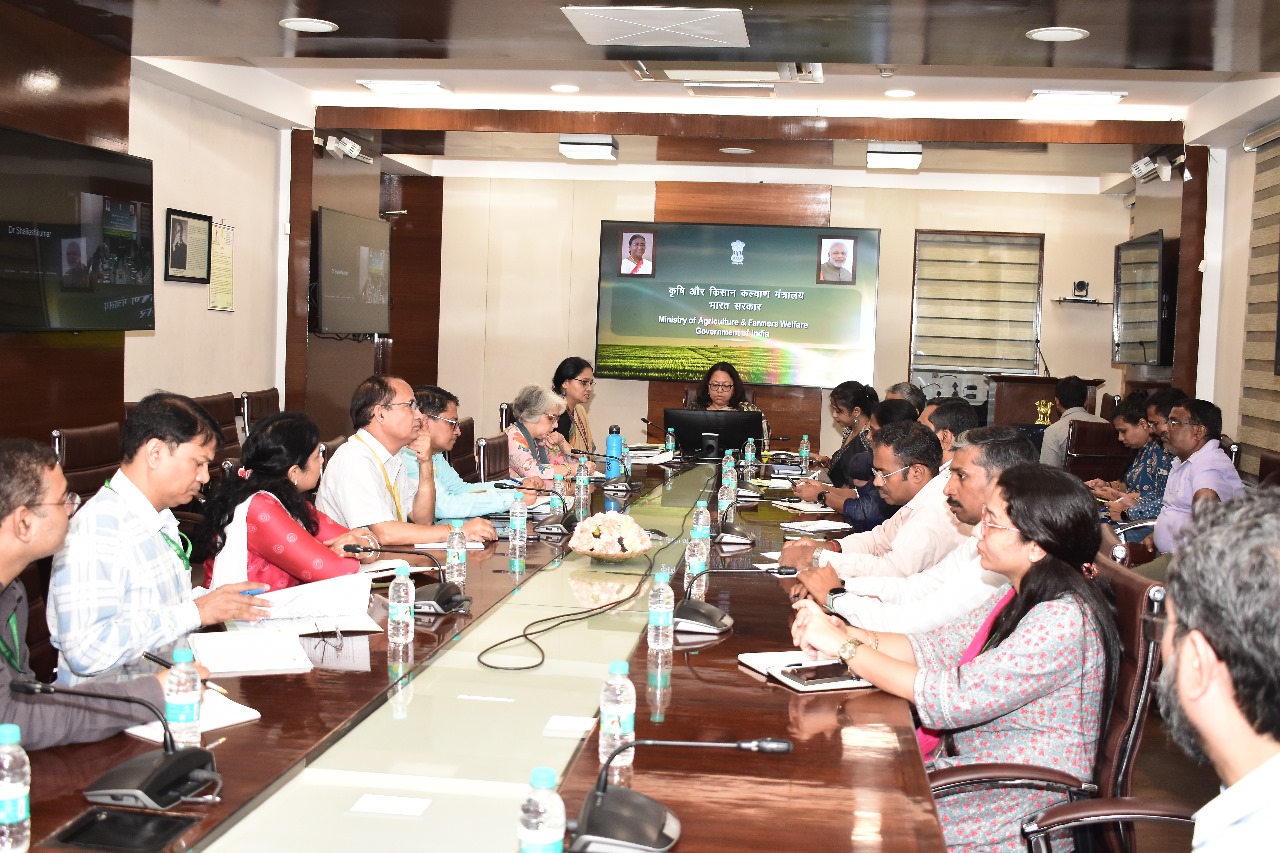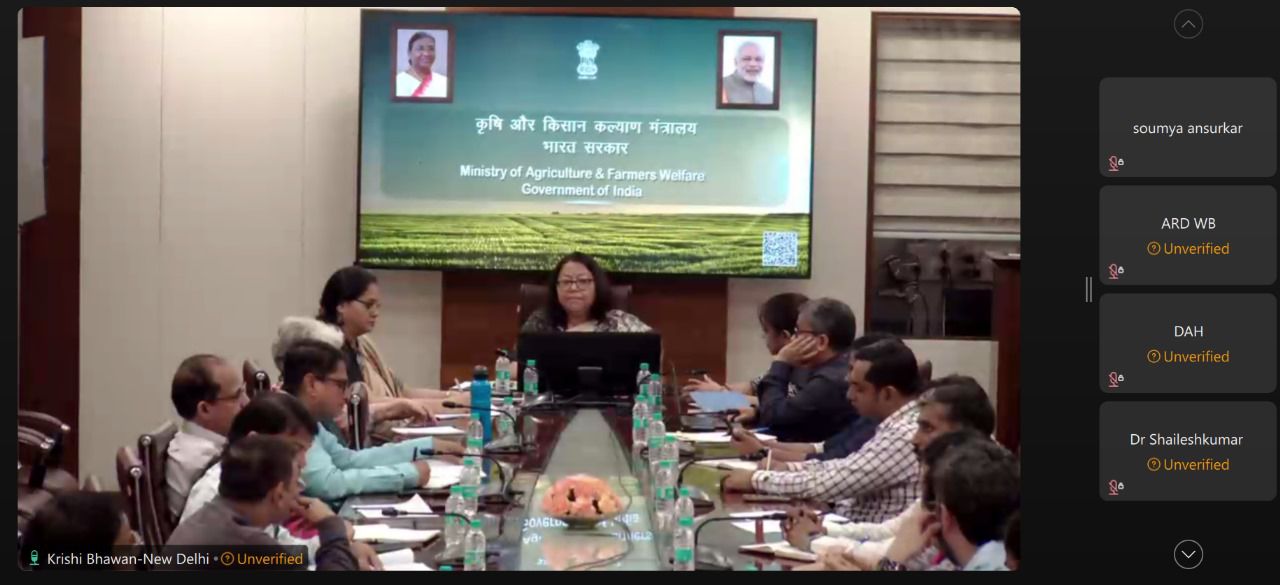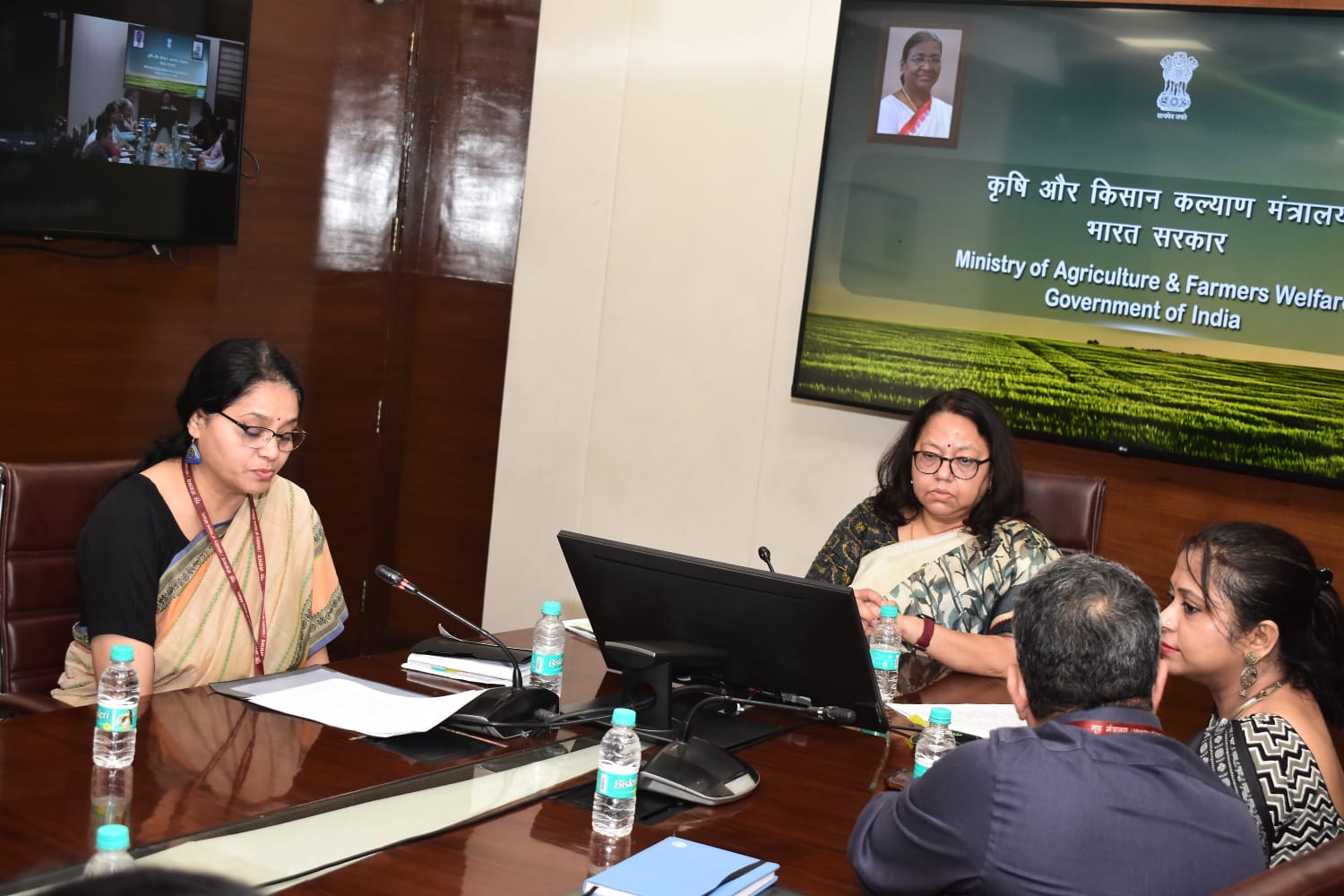Secretary, Department of Animal Husbandry and Dairying, Ministry of Fisheries,Animal Husbandry and Dairying, Smt Alka Upadhyaya chaired a National Webinar on the eve of World Rabies Day yesterday in New Delhi.

Animal Husbandry Commissioner, Dr Abhijit Mitra, Joint Secretary (Livestock Health) Smt Sarita Chouhan, Joint Secretary (GC/PC/Admin) Smt. Suparna Pachouri and technical officers of the Department participated in the meeting. Over 1000 participants joined the webinar online from across the country, with officers from State Veterinary Departments, Veterinary Universities, Animal Welfare Boards and Animal Welfare NGOs.

Smt. Upadhyaya in her keynote address, urged the participants and all the stakeholders to take a pledge to put best efforts to control and eliminate the dog mediated Rabies from our country. She also mentioned that, the deadly rabies virus has to be stopped by using the best available prevention and control technologies in a collaborative way. Referring to the central role of the Urban Local Bodies and Panchayati Raj Institutions in Mass Dog Vaccination, the Secretary suggested to hold a workshop with the Urban and local bodies for streamlining implementation and continuous monitoring of vaccination as MDV is the most cost effective method of Rabies control.

Dr. Abhijit Mitra reiterated that mass vaccination of dogs and control of dog population is equally important to control, manage and prevent Rabies infection. However, he emphasised that increasing stray dog population poses a big challenge to rabies control and coordinated effort by Urban Local Bodies and Panchayati Raj Institutions with the State Animal husbandry department essential to control the dog population.
Smt Sarita Chauhan talked about the importance of creating awareness among all strata of public especially children and responsible pet ownership besides coordinated efforts by all concerned departments to increase vaccination of stray dogs. The state veterinary departments of Goa, Kerala and Sikkim gave details of the planning and action for successfully controlling the disease and its spread in their respective states The novel practices adopted by these states in control and maintenance of controlled status of disease was appreciated and all other states were called upon to replicate the most conducive model for their states. The activities including mass vaccination, sterilization, and robust public awareness campaigns. Strengthening rabies surveillance, legislation, and reporting systems will be essential for maintaining rabies-free status and ensuring public safety, she specified during her session.
Dr. Simmi Tiwari, Joint Director and Head, Centre for One Health, National Centre for Disease Control, presented an update on India’s National Rabies Control Program. The program, which aims to eliminate dog-mediated rabies by 2030, collaborates internationally and provides technical support to neighbouring countries. Key strategies include mass dog vaccination and post-exposure prophylaxis.
Dr Sharda from Department of Microbiology, Karnataka Veterinary, Animal and Fisheries Science University made a presentation on Rabies diagnosis. State Animal Husbandry Departments from Goa, Kerala and Sikkim were made presentations on their model Rabies Elimination programs and achievements.
 Matribhumi Samachar English
Matribhumi Samachar English


